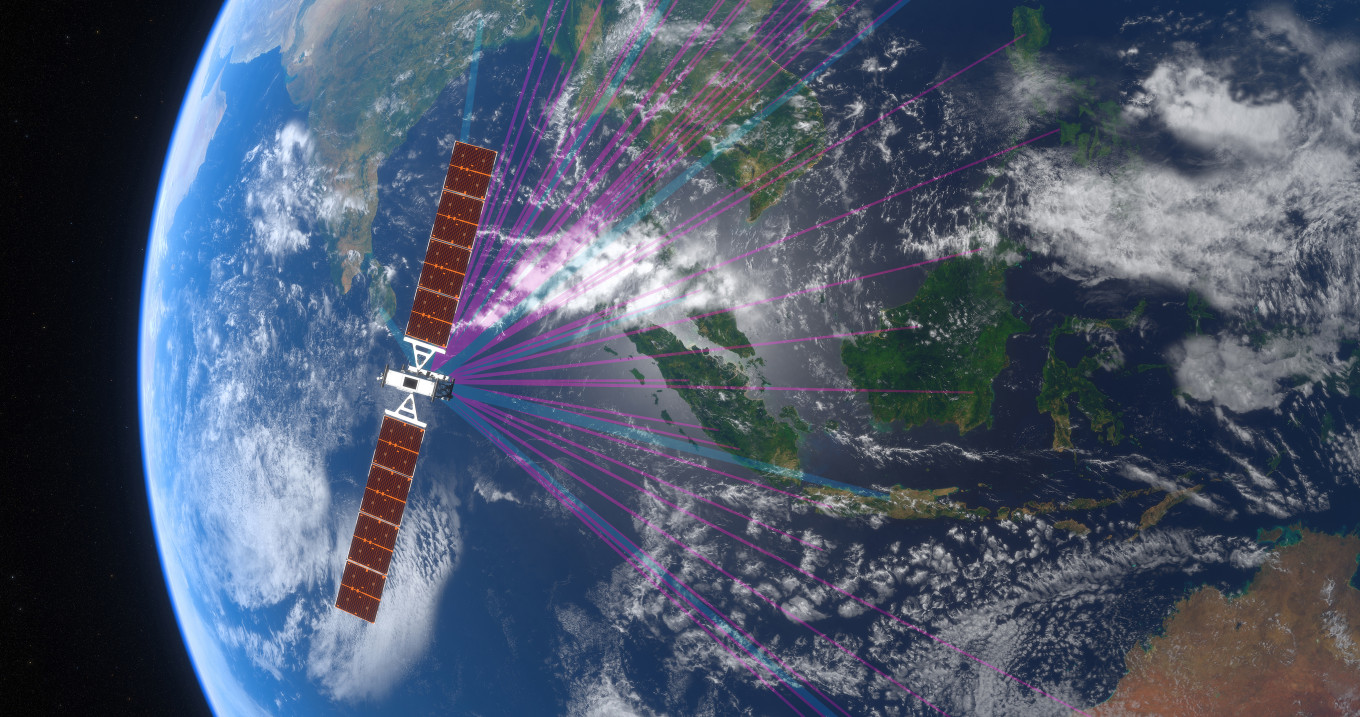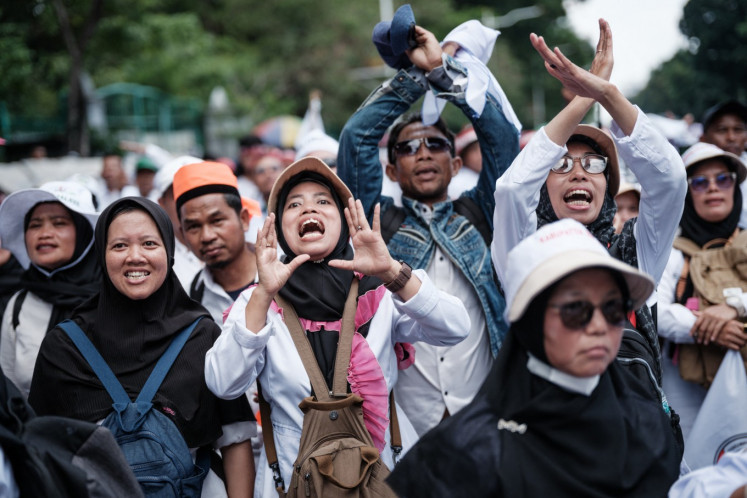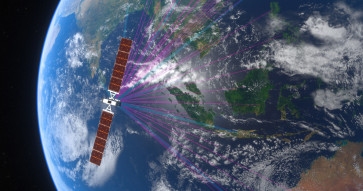Popular Reads
Top Results
Can't find what you're looking for?
View all search resultsPopular Reads
Top Results
Can't find what you're looking for?
View all search resultsRethinking Indonesia’s future at low earth orbit
There is currently no international legally binding instrument governing the regulation of orbital slots for LEO satellite launches.
Change text size
Gift Premium Articles
to Anyone
O
uter space activities that were originally carried out during the Cold War era for ideological purposes have now turned into a competition for commercial benefits. The private sector is a new player in international space activities with significant roles. Amazon Kuiper, OneWeb and Starlink are among the private parties actively involved in commercial space activities.
In the early days of the development of outer space activities, the primary objective of satellite launches was to place satellites in geostationary orbits. In addition to low earth orbit (LEO), medium earth orbit and highly elliptical orbit, the geostationary orbit (GSO) is one of four orbits that serve as satellite operating trajectories. The commercial value of the communications satellite industry, which generally orbits the GSO, has diminished.
Private parties are now dominating space activities, with most wishing to launch their satellites into the LEO, where most satellites operate because their faster clock speed makes them more useful than GSO satellites.
Initially, only large-scale satellites were launched to the GSO. However, the launch of small-scale satellites or small satellites to the LEO has become a new attraction in the space industry. Small satellites launched into the LEO are typically employed for communications.
Small satellites offer the advantage of lower production costs than large-scale satellites, which are so expensive that they cannot be produced in large quantities. As a comparison, the cost of producing a small satellite is approximately US$1 million, against $400 million for a large satellite. The weight of small satellites ranges from less than 1 kilogram for pico-satellites to 1,000 kg for mini-satellites.
With the low cost of producing these small satellites, satellite companies such as Amazon Kuiper, Oneweb and Starlink are encouraged to form a satellite constellation at the LEO. A large number of satellites are required.
According to the United States Federal Communication Commission (US FCC), Starlink was granted permission in 2018 to launch 4,409 satellites into the LEO for its initial phase. Starlink has launched 2,042 satellites into the LEO as of January 2022, and the company plans to launch a total of 42,000 satellites in the long term.



















